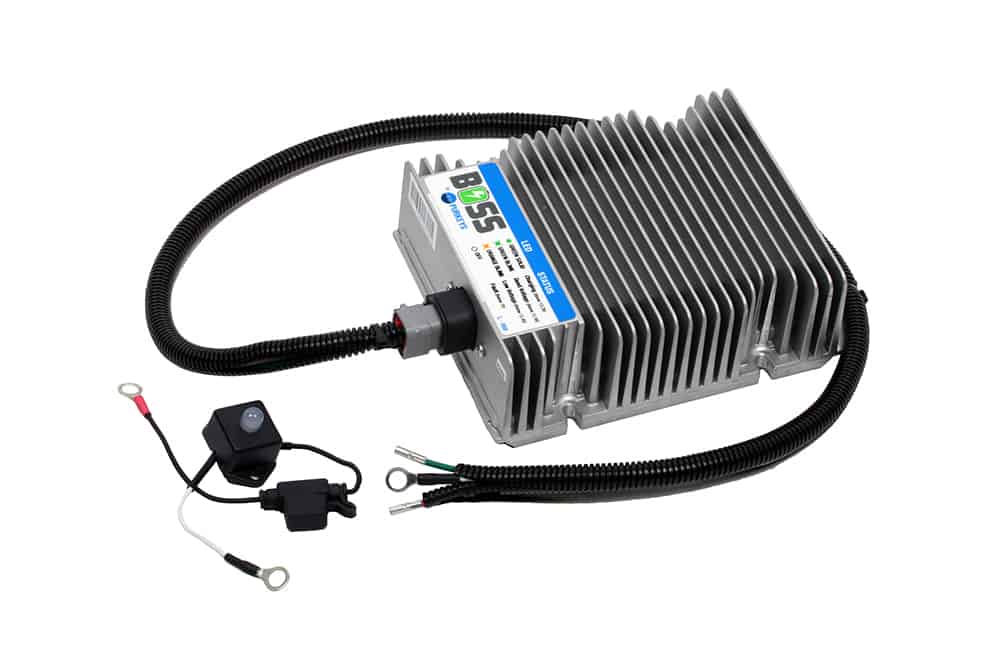DRTDEVL
Mothfukle
A few weeks ago, I "rebuilt" my PJ car hauler, adding a battery box, a powered tongue jack, and a 12k winch. When wiring up my van last month, I used a 12 ga wire and a 30A circuit breaker for the 12v+ pin on the 7-way in order to keep the battery charged (and the breakaway battery at the same time, although I really need to put a diode inline on that one).
Fast-forward to last week. I picked up a parts vehicle about an hour away. I winched it up, brought it home an hour, and winched it off the trailer the next day. I then disconnected the trailer and brought the van to the front of my house where I parked it... but forgot to unplug my heated seat cover from the outlet (the power outlets aren't switched, they are constant).
Thursday morning, I went to fire up the van to go get the second parts vehicle from the same place. My battery was totally dead, so I grabbed a spare van along with my jump pack to jump it, and connected the trailer, driving an hour to get the second one. Upon arrival, I disconnected so the engine (on a pallet) could be loaded into the back of the van, and reconnected to load the parts van. When winching the van up, the battery was too weak to get it more than halfway up, so I connected my jump pack and finished loading. When I got home, the battery was too weak to complete the unloading, and I had to use my jump pack to finish the job. Afterward, I parked the trailer by the shop and hooked it up to my 6 amp battery charger for the rest of the day. Yesterday, while working out in the shop, I had it hooked to the charger for another 4 hours before parking it back where it belongs.
Questions:
Why did the battery run out of power? Was the alternator too busy trying to charge the flat van battery the entire trip that no power was left over for the trailer's charge circuit? Did I not size it large enough to keep a group 35 marine battery charged after pulling a heavy load? After all, it is sized to push 30 amps, but is it tripping the breaker when the battery is low due to the draw, thereby not charging the battery at all? If that is the case, how can I restrict the draw to under 30 amps?
Fast-forward to last week. I picked up a parts vehicle about an hour away. I winched it up, brought it home an hour, and winched it off the trailer the next day. I then disconnected the trailer and brought the van to the front of my house where I parked it... but forgot to unplug my heated seat cover from the outlet (the power outlets aren't switched, they are constant).
Thursday morning, I went to fire up the van to go get the second parts vehicle from the same place. My battery was totally dead, so I grabbed a spare van along with my jump pack to jump it, and connected the trailer, driving an hour to get the second one. Upon arrival, I disconnected so the engine (on a pallet) could be loaded into the back of the van, and reconnected to load the parts van. When winching the van up, the battery was too weak to get it more than halfway up, so I connected my jump pack and finished loading. When I got home, the battery was too weak to complete the unloading, and I had to use my jump pack to finish the job. Afterward, I parked the trailer by the shop and hooked it up to my 6 amp battery charger for the rest of the day. Yesterday, while working out in the shop, I had it hooked to the charger for another 4 hours before parking it back where it belongs.
Questions:
Why did the battery run out of power? Was the alternator too busy trying to charge the flat van battery the entire trip that no power was left over for the trailer's charge circuit? Did I not size it large enough to keep a group 35 marine battery charged after pulling a heavy load? After all, it is sized to push 30 amps, but is it tripping the breaker when the battery is low due to the draw, thereby not charging the battery at all? If that is the case, how can I restrict the draw to under 30 amps?
 thereby were running off of the trailers low battery on the way home. Somewhere along the way, the upfitter block's fuse had been replaced in the past with a 20 amp, when it is a 30 amp circuit. That fuse popped the moment I put a load on the winch, thereby causing no charge.
thereby were running off of the trailers low battery on the way home. Somewhere along the way, the upfitter block's fuse had been replaced in the past with a 20 amp, when it is a 30 amp circuit. That fuse popped the moment I put a load on the winch, thereby causing no charge.